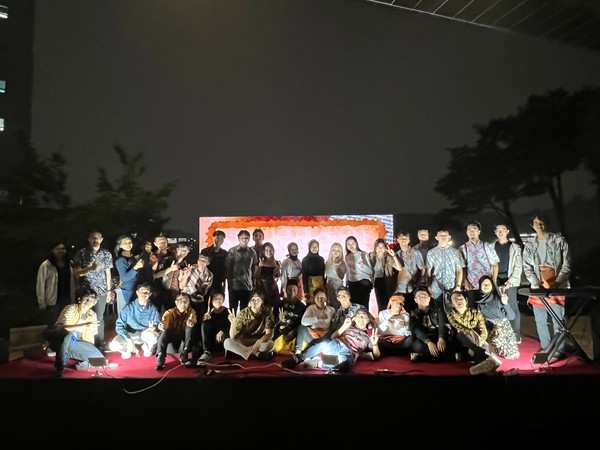Picking an institution for one’s studies is, perhaps, one of the major life decisions that all of us have been faced with at least once. When it comes to choosing the right place, many factors come into consideration, such as academics, research output, and tuition fees. However, once you step foot on the university campus, it is the extracurricular events and the people surrounding you that bring color and vibrancy to the student life. KAIST has been putting continuous efforts into globalizing our campus and encouraging cultural exchange, which fit well in its cosmopolitan and ethnically diverse international student body. One of such initiatives is the KAIST Overseas Networking Exchange, otherwise known as KAIST ONE.
First established by the Office of International Relations, KAIST ONE is a series of events organized by international students that aim to promote the cultures of their home countries. Taking place multiple times throughout a semester, a KAIST ONE event typically includes an hour-long presentation about the culture, traditions, and language of a certain country, followed by numerous performances and dinner including a variety of local dishes. For someone who is new to a particular culture, attending a KAIST ONE event can serve as a light yet informative introduction to a previously undiscovered part of the world. Over the past couple of semesters, I myself had a chance to attend three such events.
The first KAIST ONE event I went to was KAIST ONE Kazakhstan, held in the multipurpose hall in W2-1. The event was packed — I remember seeing quite a lot of international and Korean students, visitors not affiliated with the university, and even Kazakhs from outside Daejeon attending in appreciation of the efforts made to spread the word about Kazakhstan’s culture. The hosts made sure to keep the audience engaged with an informative presentation, mini games, dance performances involving national costumes, and fun culture trivia. At the end of the event, audience members had a chance to try some of the Kazakh dishes that were prepared beforehand.
The second KAIST ONE I attended was organized by the Thai community. The event lasted longer than KAIST ONE Kazakhstan, as students from Thailand operated a number of activity booths before their culture presentation. Set up in front of the Undergraduate Branch Library (N10), the booths facilitated a number of fun activities, such as learning how to write one’s name in Thai, making traditional paper crafts, and even practicing Muay Thai. This was followed by a very interesting presentation that delivered the intricacies of Thai culture. The part of their presentation that I remember most distinctly was about the Thai TV commercials; I was amazed by the amount of creativity and emotions that are put into producing them.
The most recent KAIST ONE event that I attended was KAIST ONE Indonesia. Similar to KAIST ONE Thailand, the event involved games and challenges, in which one could win small prizes. The Indonesian community also came up with a unique way of storytelling for their culture presentation, which involved acting and directly communicating with the audience. I especially liked their spectacular national dance performance — its coordination, energy, and smoothness could have only been achieved with weeks of preparation and practice beforehand. Some members of the audience got a chance to play Indonesian traditional musical instruments and practice a simple dance. The hosts kept the audience entertained throughout the entire duration of their presentation, which culminated with a Kahoot game on Indonesian culture.

All three KAIST ONE events that I attended turned out to be both fun and informative. Since its inception, KAIST ONE has brought together more than 500 people from all over the world and continues living up to its goal of globalizing our campus and promoting cultural exchange. Attending a KAIST ONE event would be a great way to meet new people, be exposed to undiscovered cultures, and become more aware of the countless cultural differences that populate our campus. I would highly recommend joining the next KAIST ONE event, organized on November 3 by the Ecuadorian community, which I am sure will turn out to be a success once again.

